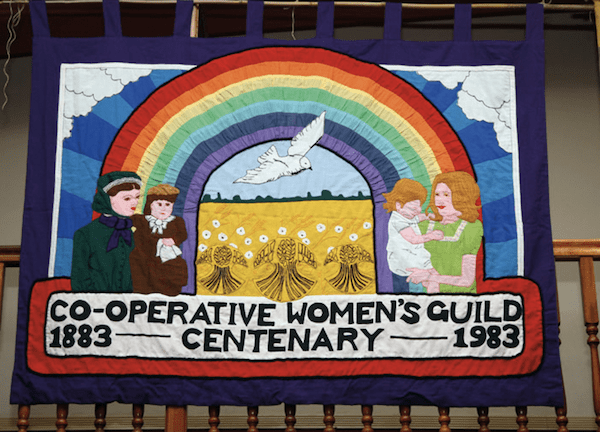
By Co-operative News
With open membership being one of the seven co-operative principles, promoting gender equality has been a key feature of the co-operative movement.
On International Women’s Day the chair of the International Co-operative Alliance’s Gender Equality Committee, María Eugenia Pérez Zea, released a declaration highlighting the movement’s contribution to empowering women.
Among the first to give women the right to vote, co-operatives have enabled women to fulfil their potential. When the Rochdale Pioneers Equitable Co-operative Society was founded in 1844 women had the right to be full members.
The Women’s Co-operative Guild, which was set up in the UK in 1883, was actively involved in lobbying on a number of crucial issues such as introducing the minimum wage, equal pay, divorce laws, maternity benefits and initiating the white poppies campaign.
Through its Gender Equality Committee, the International Co-operative Alliance has also been active in pressing for progress at global level. The ICA Strategy for Promoting Gender Equality was developed already in 1995 - the year of the adoption of the United Nations’ Beijing Declaration.
Today women continue to face challenges when it comes to equal access to education, health care, decent work, and representation in political and economic decision-making processes. Achieving gender equality and empowering women and girls is one of the UN’s Sustainable Development Goals, which the Alliance is supporting.
Co-operatives continue to contribute to achieving economic and social empowerment for women.
In February 2015 the Alliance and the ILO carried out a survey to examine the perceptions among practitioners, academics, and members of NGO and government institutions concerning: the impact of co-operatives on women’s empowerment and gender equality generally and in comparison to other business forms; the challenges ahead.
In total 581 participants responded to the online survey, 75% of whom said they believed co-operatives had improved participation of women over the past 20 years. The study also indicated that access to employment was being indirectly facilitated by co-operatives in fields such as housing, healthcare, childcare, and eldercare, which provide women with affordable and accessible services that enable them to work.
In 2015, the regional organisation of the International Co-operative Alliance for Asia-Pacific published a second edition of the ‘Leadership Training Manual for Women Leaders of Co-operatives’. A simple, easy-to-use booklet, the publication reflected problems that women co-operators faced. The guide contains inspiring case studies of co-operators and co-operatives that have become even more empowered.
The same year, co-operatives celebrated their contribution to gender equality on the UN’s International Day of Co-operatives. The theme for the day was “Choose co-operative, choose equality”.
In 2016 the Alliance launched Co-ops for 2030, an online platform for co-operatives to learn about the SDGs, make pledges to help achieve them and track their progress. Last year the Alliance tracked those pledges in a report explaining how co-ops were helping to meet the 2030 sustainable development agenda. The report revealed how a number of co-operatives had pledged to achieve greater gender parity in their boards of directors, including CIC Insurance Group in Kenya, Vancity and The Co-operators in Canada, and Reset Social Co-operative, Formula Servizi, Politecnica Engineering and Architecture Social Co-operative, and La Collina Social Co-operative in Italy.
The Indian Farmers Fertiliser Co-operative Limited (IFFCO) in India is supporting women’s economic participation. The co-operative pledged to promote self-help groups for women and arrange training programmes to improve women’s skills in beekeeping, tailoring, embroidery, adult education, fruit and vegetable preservation, and computer literacy, among others.
Co-operatives UK, the apex body for co-operatives in the United Kingdom, committed to work with its members to achieve the goals of the Co-operative Women’s Challenge, a campaign to ensure that women are fairly represented in democratic structures and more women take up senior management roles.
Photo: A banner celebrating 100 years of the Co-operative Women's Guild. The guild was dissolved in 2015 but its legacy continues to exist.




